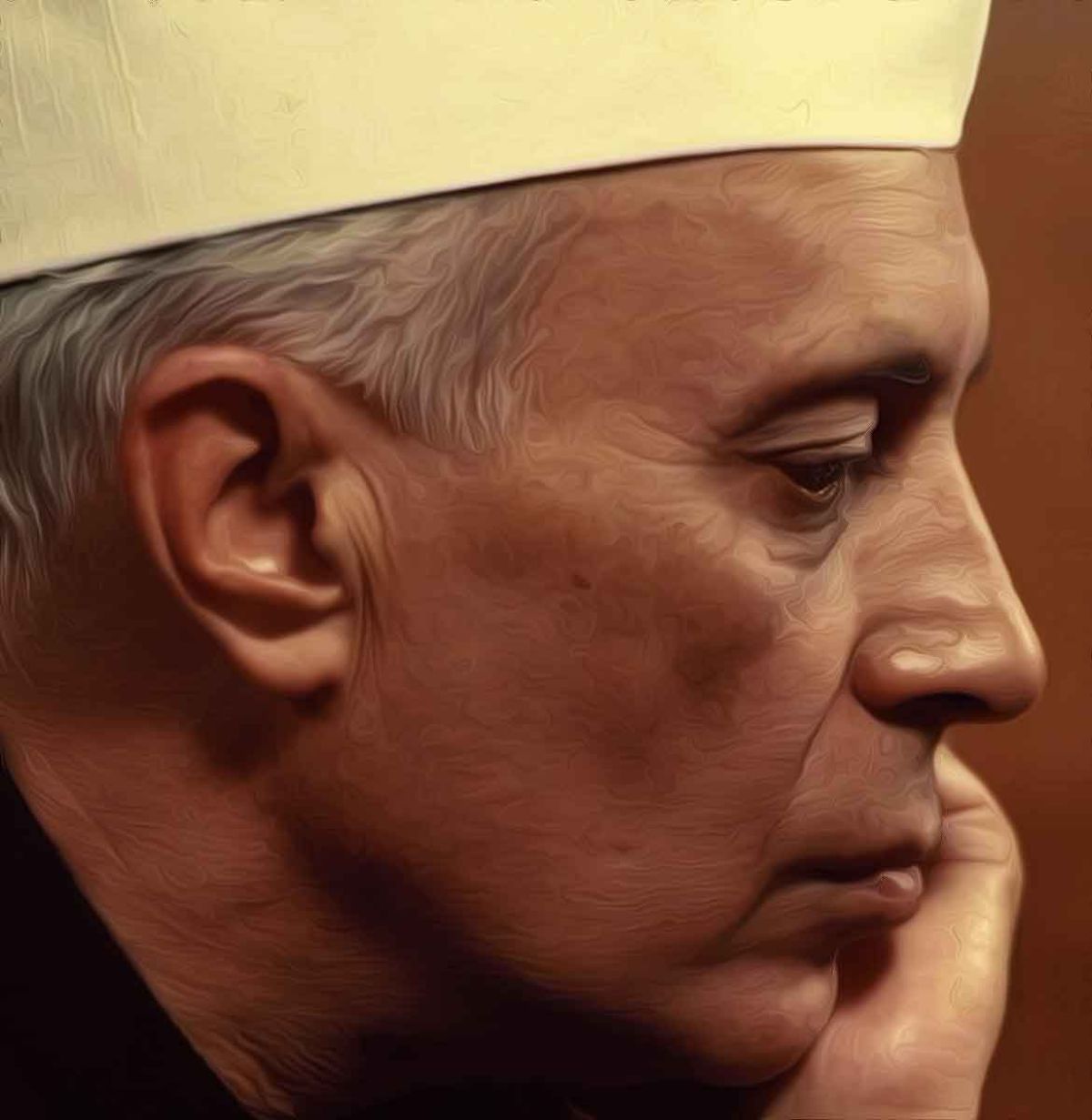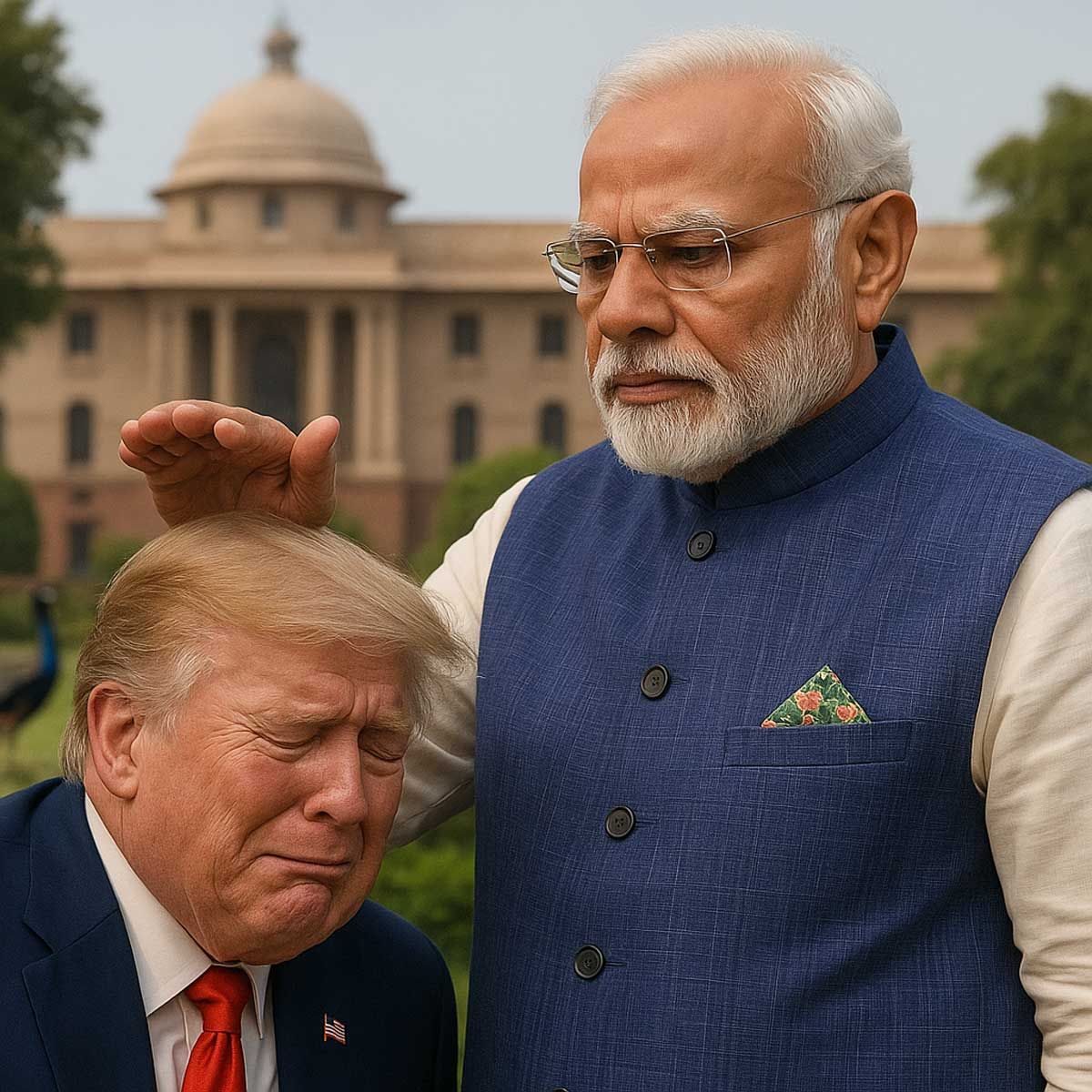Sanatan Articles
Satyaagrah
Written on
Satyaagrah
Written on
Satyaagrah
Written on
Satyaagrah
Written on
Satyaagrah
Written on
JOIN SATYAAGRAH SOCIAL MEDIA
"When a mind is stubborn, it has little room for real wisdom and knowledge": India-China war - Mao commented on Nehru’s Forward Policy with one of his epigrams, ‘A person sleeping in a comfortable bed is not easily aroused by someone else’s snoring’

Again and again, military men have seen themselves hurled into war by the ambition, passions and blunders of civilian governments, almost wholly uninformed as to the limits of their military potential and almost recklessly indifferent to the military requirements of the war they let loose. —Alfred Vagts, ‘The History of Militarism’ (Max/289)
|
India and China had a record going back thousands of years for never having fought a war between them. Nehru, through his unwise and ill-considered policies, broke that record, though unwillingly. Nehru’s ‘forward policy’ and his failure in settling the borders resulted in the India-China war and its consequent human and financial loss, besides the loss of face for India and Indians before the international community. Here, we are talking about what India could control, not what China had in mind.
It was not just one Himalayan blunder, but like the Himalayan range, a range of blunders by Nehru over a fifteen-year period since independence across domains—External Security, Defence, Foreign Policy, and so on— that led to the disaster that shamed India and the Indians before the world. The same are summarised below, followed by coverage of some of them in detail.
Blunder-1. Allowing Tibet to be annexed by China, and recognising China’s claim over Tibet. This allowed the Tibet-India borders to become China-India borders, bringing with them all the associated problems.
Blunder-2. Not settling the border issue with China, and being inflexible about it.
Blunder-3. Signing the Panchsheel agreement with China in 1954 without first settling the borders.
Blunder-4. Change of Indian maps unilaterally after July 1954 without mutual discussions with the other party—China.
Blunder-5. Nehru’s refusal to consider the proposal of the Chinese delegation in 1960 of an East-West give-and-take swap on the McMahon Line and Aksai Chin.
Blunder-6. Ill-conceived, non-forward-looking Forward Policy of establishing indefensible border posts in disputed areas, provoking China, or giving China the excuse to attack.
Blunder-7. An absurd assumption on the part of Nehru and his close group that China would not attack even if India established certain posts in the disputed areas.
Blunder-8. Leaving the forward posts grossly under-manned and under-armed, with inadequate logistics in place.
Blunder-9. The politicisation of the army's high command. Favouritism. Putting in place sycophants and submissive officers at top positions who would kowtow to political bosses. Eventually, some of these chosen submissive officers contributed to the humiliation of India.
Blunder-10. Gross neglect of defence and external security.
Blunder-11. Appointing an insufferably arrogant and incompetent protégé Krishna Menon as Defence Minister.
Blunder-12. Nehru’s indiscretion of publicly declaring on 12 October 1962, barely 8 days before the war started, that he had instructed the Army to "evict the Chinese"! Does one give operational orders publicly? Wars are meant to be waged silently and anonymously. Mature nations and mature leaders are not expected to indulge in empty bluffs! There was no worthwhile plan to either evict the Chinese or to resist them if they attacked!!
Blunder-13. After mere 4 days of fighting, during which the damage had not been too much, China offered a ceasefire on 24 October 1962 suggesting withdrawal by 20km by both sides from the line of actual control, followed by talks and negotiated settlement on the border dispute. Nehru didn’t agree! India’s major humiliation in the war happened later after 14 November 1962—that could have been avoided, had India taken up the Chinese offer.
Blunder-14. On 21 November 1962 China declared a unilateral ceasefire and offered the same terms it offered on 24 October 1962 and again suggested talks, discussions, a joint ground survey and negotiated settlement. India agreed to a ceasefire but did not take up the offer for talks. It was worth resolving the dispute.
Blunder-15. Nehru should have done whatever it took to amicably settle the border dispute with China, and should not have left it open for the generations to follow, as he did for Kashmir, because with the passage of time, as China became stronger and stronger, the settlement became difficult.
Blunder-16. Nehru should have set up a fully-empowered Commission for a comprehensive enquiry into all aspects of the debacle with a mandate to recommend action against the negligent and the guilty, and suggestions for the steps to be taken going forward. The findings should have been made public. That was the minimum expected of a democratic country—but, nothing of the sort was done.
Blunder-17. Nehru should have resigned in the aftermath of the rout. Not just offered to resign—the offer he didn’t make anyway—he should have actually resigned or should have been made to resign. Democratic norms demanded it. It would have been a good lesson for the future politics of India—you can’t do a series of major blunders, yet continue in power. Not just as a lesson, but also on account of its beneficial effects. Had he resigned another competent person—and there were many—who would not have carried Nehru’s baggage, would have looked at the issue afresh and reached a permanent settlement on the borders with China.
|
Ill-conceived forward policy
With Nehru–Krishna Menon deciding to unilaterally fix India’s border with China, India went ahead with its plan of physical presence on the frontiers. It began building forward checkposts under its hare-brained Forward Policy—which was actually a “bluff” masquerading as a military strategy. Their locations were as per the border unilaterally determined by India, and not as per any mutual discussions or agreement with China.
There was, therefore, a possibility of China's objection, and even Chinese action to demolish the posts. The fact was that the boundaries were not settled, so what was said within the Indian boundary for India, may have been within the Chinese boundary for China. If you had not settled the boundaries, controversies were bound to arise.
But, rather than negotiating a boundary with China and reaching a peaceful settlement, Nehru-Menon & Co, in their wisdom—their Forward Policy—convinced themselves that it is they who would determine the boundary, and in token thereof, establish their posts, like markers. That China could object, and then attack and demolish those posts, and even move forward into India did not seem to them a possibility. Why? Because, reasoned Nehru: any such "reckless" action by China would lead to world war, and China would not precipitate such a thing! That what they were themselves doing was also "reckless" did not apparently strike the wise men!
The decision on the ‘Forward Policy’ was reportedly taken at the PMO on 2 November 1961 in a meeting attended by Nehru, Krishna Menon, General PN Thapar (COAS), Lieutenant General BM Kaul (CoGS), BN Mullik (Director–IB), Brig. DK Palit, and the then Foreign Secretary. (KNR/205-6)
Wrote Kuldip Nayar in ‘Beyond the Lines’:
“Nehru ordered that police check-posts be established to register India’s presence in the Ladakh area. As many as 64 posts were built, but they were not tenable. Home Secretary Jha told me that it was the ‘bright idea’ of B.N. Malik, the director of intelligence, to set up police posts
‘wherever we could’, even behind the Chinese lines, in order to ‘sustain our claim’ on the territory. This was Nehru’s ‘Forward policy’, but then Jha said, ‘Malik does not realise that these isolated posts with no support from the rear would fall like ninepins if there was a push from the Chinese side. We have unnecessarily exposed the policemen [Assam Rifles were posted] to death.’ He went on to say: ‘Frankly, this is the job of the army, but as it has refused to man the posts until full logistical support is provided, New Delhi has pushed the police.’”(KN)
Arun Shourie Quotes Nehru in ‘Are we deceiving ourselves again?’:
“It is completely impracticable for the Chinese Government to think of anything in the nature of invasion of India. Therefore I rule it out... It is necessary that the system of check-posts should be spread along this entire frontier. More especially, we should have check-posts in such places as might be considered disputed areas... As Demchok is considered by the Chinese as a disputed territory, we should locate a check-post there. So also at Tsang Chokla...” (Noor/223-4)(AS/103)
China seemed to have viewed India's Forward Policy as a deliberate attempt to usurp Chinese territory, and provoke war. As things stood, China was suspicious of India’s intentions. Wrote Rustamji:
“His [Nehru’s] mistake was that he did not accept or realise how our ‘forward policy’ was being received in China.”(Rust/215) Several analysts, including Neville Maxwell(Max), are of the opinion that Nehru’s ill-conceived Forward Policy that was rolled-out December 1961 onwards was at the root of the 1962 India-China War.
“Mao commented on Nehru’s Forward Policy with one of his epigrams: A person sleeping in a comfortable bed is not easily aroused by someone else’s snoring.’...[commented Mao:] ‘Since Nehru sticks his head out and insists on us fighting him, for us not to fight with him would not be friendly enough. Courtesy emphasises reciprocity.’” — Henry Kissinger, ‘On China’(HK/L-3012)
|
No preparation—Yet, orders to throw out the Chinese!
In response to a reporter’s query, Nehru grandly declared at the airport on 12 October 1962 on his way to Ceylon[Sri Lanka] that he had already “ordered the armed forces to clear the Chinese from the NEFA”.(URL23)(MB2/137)
Confirming the above, on October 14, Indian Defence Minister VK Krishna Menon told a meeting of Congress workers at Bangalore that the Government had come to a final decision to ‘drive out the Chinese’. He declared that the Indian Army was determined to fight the Chinese to the last man. (URL23)
In its jingoism, the press lapped up the comment. Wrote the Statesman: “Mr Nehru…has told the country…that the armed forces have been ordered to throw the Chinese aggressors out of NEFA and that until Indian territory in that area is cleared of them there can be no talks with China.”
Even foreign newspapers reported it, some headlining the news to the effect that Nehru had declared war on China. The ‘New York Herald Tribune’ headed it's editorial ‘Nehru declared war on China’. The Chinese People’s Daily also reported it, advising Nehru to “pull back from the brink of the precipice, and don’t use the lives of Indian troops as stakes in your gamble.” (Max/345)
The question is: Does one give operational orders publicly? It amounted to declaring war and giving the Chinese the excuse to retaliate. Wars are meant to be waged silently and anonymously. Mature nations and mature leaders are not expected to indulge in empty bluffs—there was no worthwhile plan to either evict the Chinese or to resist them if they attacked!!
With the AHQ dumbfounded at Nehru’s surprise “throw out” orders, General Thapar rushed to Defence Minister Krishna Menon and pointed out the orders were contrary to what was mutually agreed: not to attack or engage the Chinese! Responded Menon, unconcerned: “This is a political statement. It means action can be taken in ten days or a hundred days or a thousand days.” (DD/363)
Commented Mao: “Since Nehru sticks his head out and insists on us fighting him, for us not to fight with him would not be proper. Courtesy emphasises reciprocity.”
Responded Zhou Enlai: “We don’t want a war with India. We have always strived in the direction of avoiding war. We wanted India to be like Nepal, Burma or Mongolia, i.e. solve border problems with them in a friendly fashion. But Nehru has closed all roads. This leaves us only with war. As I see it, to fight a bit would have advantages. It would cause some people to understand things more clearly.”
Mao agreed: “Right! If someone does not attack me, I won’t attack him. If someone attacks me, I will certainly attack him.” (Arpi/479)
Mao directed: “First, the PLA had to secure a victory and knock Nehru to the negotiating table; and second, Chinese forces had to be restrained and principled.” (Arpi/481)
|
The Debacle
Alarmed by the Indian massing of troops in Dhola and the Indian attempts at Yumtsola on 10 October 1962 thanks to General BM Kaul, or, taking that as an excuse, the Chinese overran Dhola on 20 October 1962 heralding the 1962-war. Kaul has to be blamed for it. Having seen the situation first-hand, General Kaul, as a responsible professional, should have put his foot down on India’s Forward Policy misadventure to save the Indian army from the sure debacle it was staring at.
This is from the book, ‘Himalayan Blunder’, by Brigadier JP Dalvi, an eyewitness, and an actual participant in the 1962-war:
“At 5 on the morning of 20th October 1962 massed Chinese artillery opened up a heavy concentration on the weak Indian garrison, in a narrow sector of the Namka Chu Valley... Massive infantry assaults followed, and within three hours the unequal contest was over. The route to the plains of Assam lay wide open. The Chinese exploited their initial successes and advanced 160 miles into Indian territory... reaching the Brahmaputra Valley by 20th November. They swept aside the so-called impregnable defences of Sela Pass; Bomdilla was literally overrun; the monastery town of Towang fell without a fight. India’s panicky reaction included the scrambling of ill-equipped, ill-trained for mountain warfare and unacclimatised military formations... The Chinese were amazed at this...”(JPD/1)
President Dr Radhakrishnan was so aghast that when someone told him of a rumour that General BM Kaul had been taken prisoner by the Chinese, he commented, “It is, unfortunately, untrue.” (Max/410)
|
Nehru admits his Blunder
Wrote S Gopal, Nehru's official biographer: “Things went so wrong that had they not happened it would have been difficult to believe them.”
This is what Nehru himself admitted :
“We were getting out of touch with reality in the modern world and we were living in an artificial atmosphere of our creation...”.”(Zak/149)
“We feel India has been ill-repaid for her diplomatic friendliness toward Peking... Difficult to say the Chinese have deliberately deceived us... We may have deceived ourselves...”(AS/38)
REFERENCE:
Unabridged Edition, April 2019 Revised & Enlarged to 127 MAJOR BLUNDERS by Rajnikant Puranik | Book can be purchased from www.rkpbooks.com
 Support Us
Support Us
Satyagraha was born from the heart of our land, with an undying aim to unveil the true essence of Bharat. It seeks to illuminate the hidden tales of our valiant freedom fighters and the rich chronicles that haven't yet sung their complete melody in the mainstream.
While platforms like NDTV and 'The Wire' effortlessly garner funds under the banner of safeguarding democracy, we at Satyagraha walk a different path. Our strength and resonance come from you. In this journey to weave a stronger Bharat, every little contribution amplifies our voice. Let's come together, contribute as you can, and champion the true spirit of our nation.
 |  |  |
| ICICI Bank of Satyaagrah | Razorpay Bank of Satyaagrah | PayPal Bank of Satyaagrah - For International Payments |
If all above doesn't work, then try the LINK below:
Please share the article on other platforms
DISCLAIMER: The author is solely responsible for the views expressed in this article. The author carries the responsibility for citing and/or licensing of images utilized within the text. The website also frequently uses non-commercial images for representational purposes only in line with the article. We are not responsible for the authenticity of such images. If some images have a copyright issue, we request the person/entity to contact us at This email address is being protected from spambots. You need JavaScript enabled to view it. and we will take the necessary actions to resolve the issue.
Related Articles
- "Not a pin was manufactured, really?": Indians counter Congress leader's claims, asserting Nehru's socialist zeal post-Independence crippled Indian industries, debunking myths of his economic ingenuity & exposing enduring consequences on national progress
- Godse's speech and analysis of fanaticism of Gandhi: Hindus should never be angry against Muslims
- Winning wars but losing the peace: Sri Krishna and Mahatma
- With Lord Mountbatten & Edwina's 'bed-hopping' marriage - gay brothels and affair with PM, British historian Andrew Lownie reveals it all
- When Nehru faced mass opposition for restraining press freedom and freedom of expression to protect ‘moral standards’ of Indians
- Lets take a new year resolution together to liberate Bharatiya history from the paws of colonial effect
- "Achievement in space, politics on Earth": While ISRO's Chandrayaan-3 etches a new chapter in space history, the Congress's rush for credit speaks volumes, amidst lunar triumphs, memories of overlooked funding pleas during the UPA era cast long shadows
- Biggest Secret Reveal - How ties between Indra Gandhi and KGB made India a puppet of USSR during the Cold War
- "लिफ़ाफ़े": PM Museum writes to Sonia and Rahul Gandhi, demanding the return of 51 cartons of Nehru’s letters, including those with Edwina Mountbatten, removed in 2008, the issue was discussed extensively during the AGM of PMML in April 2024
- The perpetrator of the Jallianwala Bagh massacre General Reginald Dyer was forgiven by Mohandas Gandhi as an exercise of forgiveness or love to nurse Dyer back to life if he was suffering from a physical malady
- "Instead of leader he acted as a politician and made blunders with the theory of probability": Nehru's flawed attitudes towards Communist China and Tibet, the unsettled border in both Aksai Chin & MacMahon line, his 'rigid line' finally led to 1962 war
- Speech of Sardar Patel at Calcutta Maidan in 1948 busts the myth of ‘Muslims chose India’ and is relevant even today
- Netaji, an Impossible man can never be boxed into an ideological corner: Not just the most enigmatic figure in world history but his life is also a tough lesson in how to think about history
- Nehru lost election and became first Prime Minister of free India: All thanks to miraculous Gandhi
- British author Tunku Varadarajan tried to tarnish the image of iconic freedom fighter Netaji with reference to Hitler: Sinister agenda to malign the legacy of Netaji from calling him a ‘flawed hero’ to a ‘Nazi sympathiser’





















